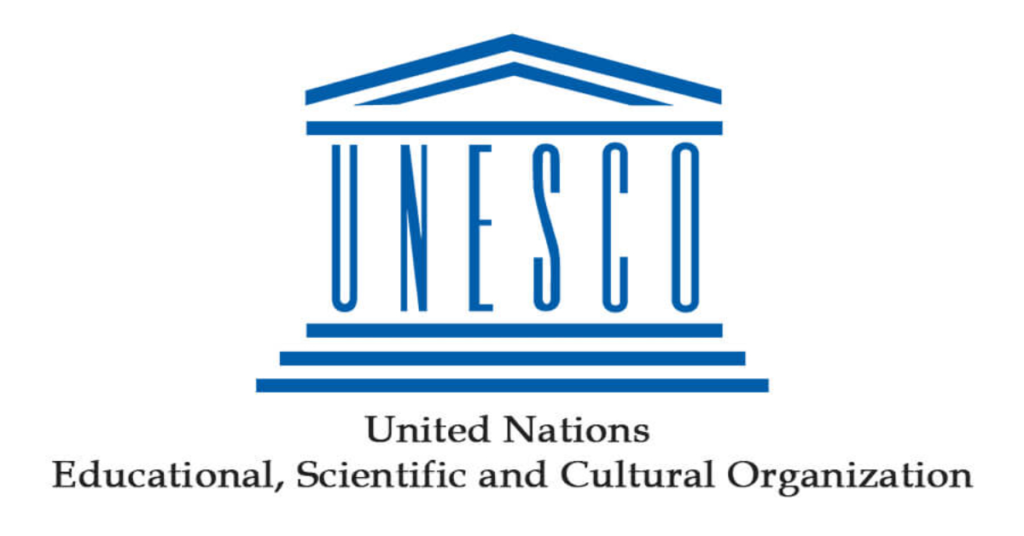UNESCO- Full Form, Facts & Objectives

Full Form of UNESCO
The United Nations Educational, Scientific and Cultural Organization (UNESCO full form) is a specialized agency of the United Nations (UN) to promote world peace and security through international cooperation in education, arts, sciences and culture. It has 194 member states and 12 associate members, as well as partners in the non-governmental, intergovernmental, and sectors. Headquartered in Paris, France, UNESCO has 53 regional field offices and 199 national commissions.
Facts About UNESCO
- UNESCO was founded in 1945 as the successor to the Nations International Committee on Intellectual Cooperation. Its constitution establishes the agency’s goals, governing structure, and operating framework.
- UNESCO’s founding mission, which was shaped by the events of World War II, is to advance peace, sustainable development, and human rights by facilitating collaboration and dialogue among nations.
- It pursues this objective through five major program areas: education, natural sciences, social/human sciences, culture, and communication/information.
- UNESCO sponsors projects that improve literacy, provide technical training and education, advance science, protect independent media and press freedom, preserve regional and cultural history, and promote cultural diversity.
- UNESCO is governed by the General Conference composed of member states and associate members, which meets biannually to set the agency’s programs and budget.
- It also elects members of the executive board, which manages UNESCO’s work, and appoints every four years a Director-General, who serves as UNESCO’s chief administrator.
UNESCO is a member of the United Nations Sustainable Development Group, a coalition of UN agencies and organizations aimed at fulfilling the Sustainable Development Goals.
Objectives OF UNESCO
There are a particular set of objectives that UNESCO works on. These are called the selective protocols the organization has to target.
The following are the objectives of UNESCO-
- Work towards quality education throughout the world. This is done to attain quality education and lifelong learning.
- To mobilize scientific knowledge and have key policies for sustainable development across the nations.
- Working towards changing and coping with the social and ethical challenges.
- Foster cultural diversity and work towards cultural sustainability.
- Foster intercultural dialogue and peace toward cultural sustainability.
- Build inclusive knowledge societies. This can be through communication and information across the nations.
- UNESCO works on global priorities like Gender Equality and Africa-related issues.
Key Achievements
1.Education:
UNESCO provides global and regional leadership on all aspects of education from pre-school to higher education and throughout life. It works through its Member States and brings together governments, the private sector and civil society to strengthen education systems worldwide in order to deliver quality education for all.
As a thought leader it publishes landmark reports and data for policy-makers, implements programmes on the ground from teacher training to emergency responses and establishes and monitors norms and standards for all to guide educational developments.
2.Natural Sciences:
Since its foundation in 1954 under the auspices of UNESCO, the complex – one of the largest scientific facilities on earth – has been home to scientists, engineers and students from CERN’s 21 Member States and visiting scholars from other countries.
More than six decades later, CERN has become one the most striking examples of successful scientific cooperation in the world. Its birth was one of the first large initiatives in science and science diplomacy at UNESCO, as well as a diplomatic answer to seek the peaceful benefits of atomic energy after the destruction caused by WW2.
Today, CERN has become a model for cooperation in terms of research, embodying the ‘one-earth’ approach that the world needs to tackle the global challenges we are facing.
3.Ocean Sciences:
Millions of people live in coastal areas across the world where the rising sea level is increasing the risk of tsunamis.
As of 2021, six countries have piloted UNESCO’s Tsunami Ready Programme, while seven more are in progress. The programme aims to build resilient communities through awareness and preparedness strategies that will protect life, livelihoods and property from future tsunamis.
In 2021, the United Nations set the goal of making all at-risk communities Tsunami Ready by 2030. IOC-UNESCO Tsunami Ready recognition has shown how different countries and communities can work together to reduce the risk of catastrophic coastal hazards that can cause death and destruction, hitting the livelihoods of vulnerable populations.
By improving warnings, enhancing preparedness and practicing response drills, these communities can prepare and become resilient, together.
4.Culture:
The history of UNESCO bears witness to the deep transformation of the concept of culture over the past decades. From global Conventions mostly dealing with building and stones in the 60’s and 70’s, the international cooperation opened new fronts for the protection and promotion of culture, including intangible cultural heritage, cultural diversity and creative economy. The definition of “culture” was spearheaded by the committee led by former UN Secretary-General Javier Pérez de Cuellar and the Mondiacult Conference in 1982. In 2022, the global Mondiacult conference is expected to take stock of progress made in the past 40 years in cultural policies, and re-imagine its future in a post-COVID-19 world.
5.Africa:
- UNESCO targets 54 African countries- this is for a stronger and better-targeted strategy that helps Africa to be on a global platform.
- UNESCO works toward the African Union Agenda 2063 and 2030. It was adopted for sustainable development that paved the ground for the African Economic Community and the African Renaissance.
6. Gender Equality:
- UNESCO believes in women and men equality- this serves equal opportunities, choices, power, capabilities, and knowledge among the citizens.
- UNESCO aims to equip girls, boys, men, and women with equal knowledge, values, skills, and attitudes. These are done to tackle gender disparities to build a sustainable future for all.
- There are many initiatives by UNESCO to work towards the same, including UNESCO Priority Gender Equality Action Plan, Gender Equality Tools, Gender Views, Gender-related UNESCO Chairs and Networks, UNESCO Prize for Girls and Women’s Education, and UNESCO Youth Mobile.
7. Communication and information:
UNESCO defends and promotes freedom of expression, media independence and pluralism, and the building of inclusive knowledge societies underpinned by universal access to information and the innovative use of digital technologies.
Through capacity-building, policy advice, international cooperation, monitoring and foresight in the fields of freedom of expression, access to information, and digital transformation, UNESCO will continue to empower key actors with a view to ensuring that fundamental freedoms are guaranteed online and offline, in line with international standards.
UNESCO Full Form: Partners of UNESCO
UNESCO’s main partners are:
- The United Nations: UNESCO works closely with the United Nations system, particularly the United Nations Development Programme (UNDP) and the United Nations Children’s Fund (UNICEF).
- National Governments: UNESCO works with national governments to improve education, science, and cultural policies and practices.
- Civil Society: UNESCO collaborates with civil society organizations to promote cultural diversity and creativity and preserve cultural heritage.
Conclusion
UNESCO’s role in promoting peace, preserving cultural heritage, and fostering global cooperation cannot be overstated. With UNESCO full form reflecting its comprehensive objectives, it continues to make significant contributions in education, science, culture, and communication. By protecting cultural heritage, promoting education for all, and advancing scientific research, UNESCO strives to build a more peaceful and sustainable world where diversity and dialogue are cherished. Let us join hands in supporting UNESCO’s noble endeavors for the betterment of humanity.
